ASEC X OFFICE OF STUDENT ACTIVITIES
Between Worlds: Bordering Identities
Written by Teo Tiu, Trisha Blas, Julian Bautista & Alysa Fermin
Design by Claire Tatad, Carlo Dano , Patricia Mercado , Therese Jovellana, Teo Tiu & Alysa Fermin
Photos by Rosbeth Dayupay
read more below
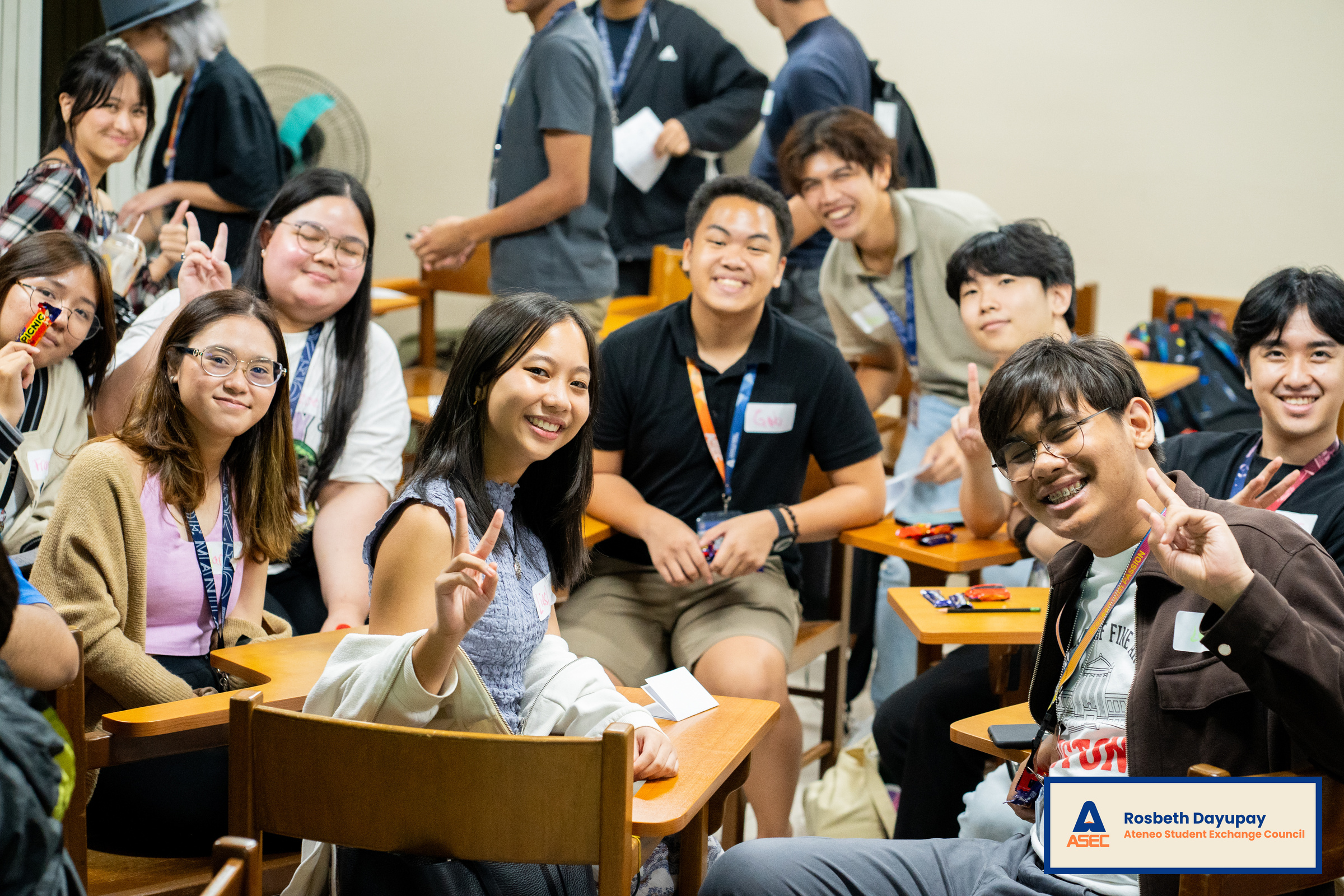
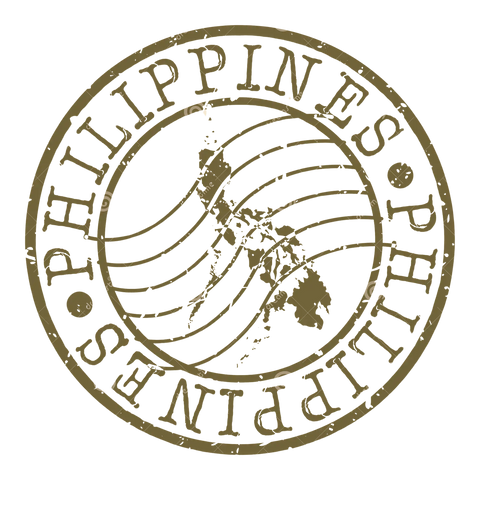
“I’m not Filipino I’m Japanese.”
When Liesl lived in Japan, where she was born, she used to say “I’m not Filipino, I’m Japanese!”. Despite being ethnically Filipino, there was a disconnect between being born and raised abroad. When she got older and moved to Singapore, this disconnect with being Filipino grew.
There is a sense of otherness and alienation that comes from not being able to identify with the culture of the country you live in. To live fully in the Philippines, without an accompanying sense of belonging, can be a lonesome and heavy a burden for an individual. Although these are the by-products of a global background, they do not define Third Culture Kids (TCK). Rather, the TCK experience is multidimensional and unique to each person.
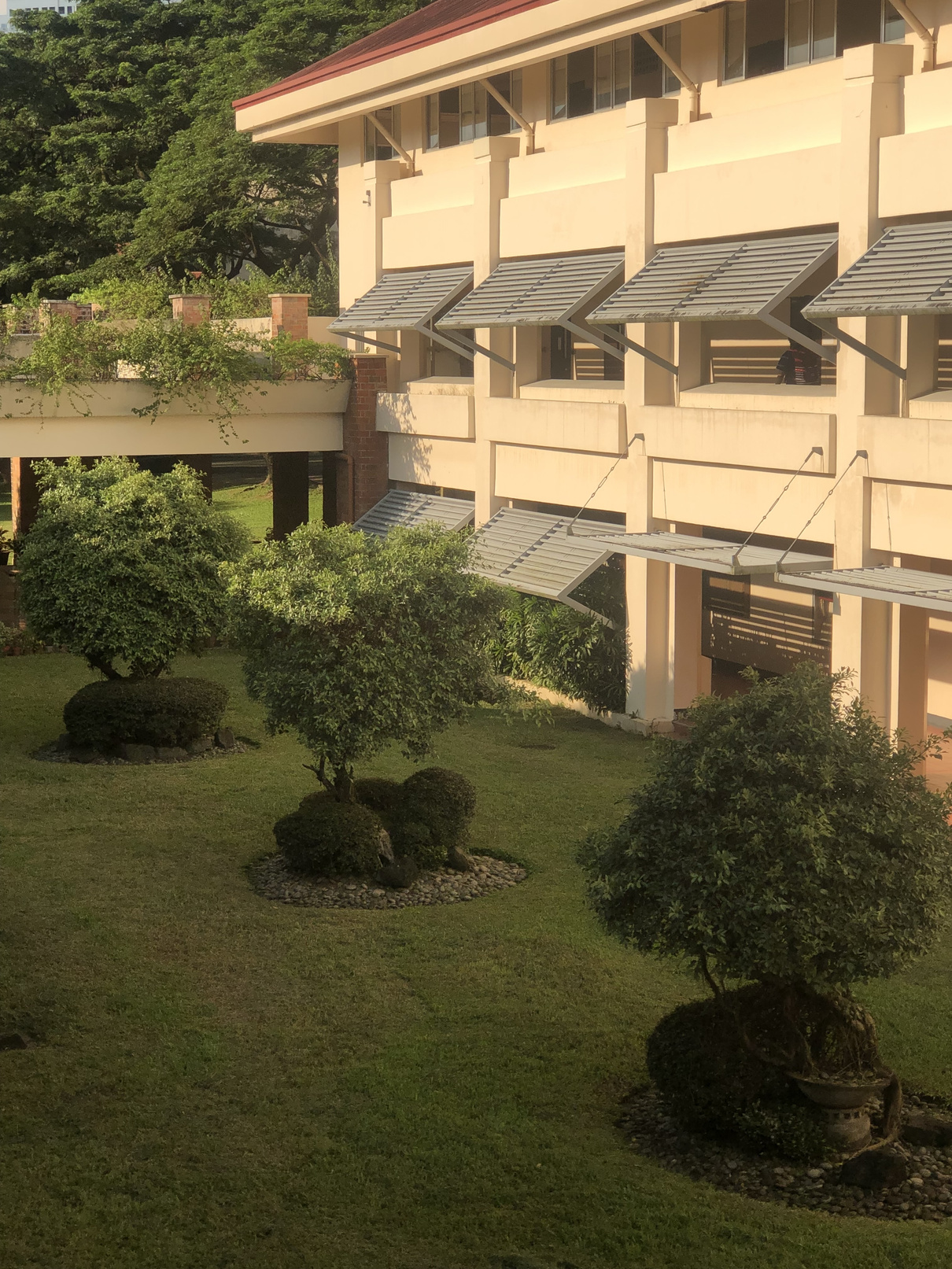
Photo by Alysa Fermin
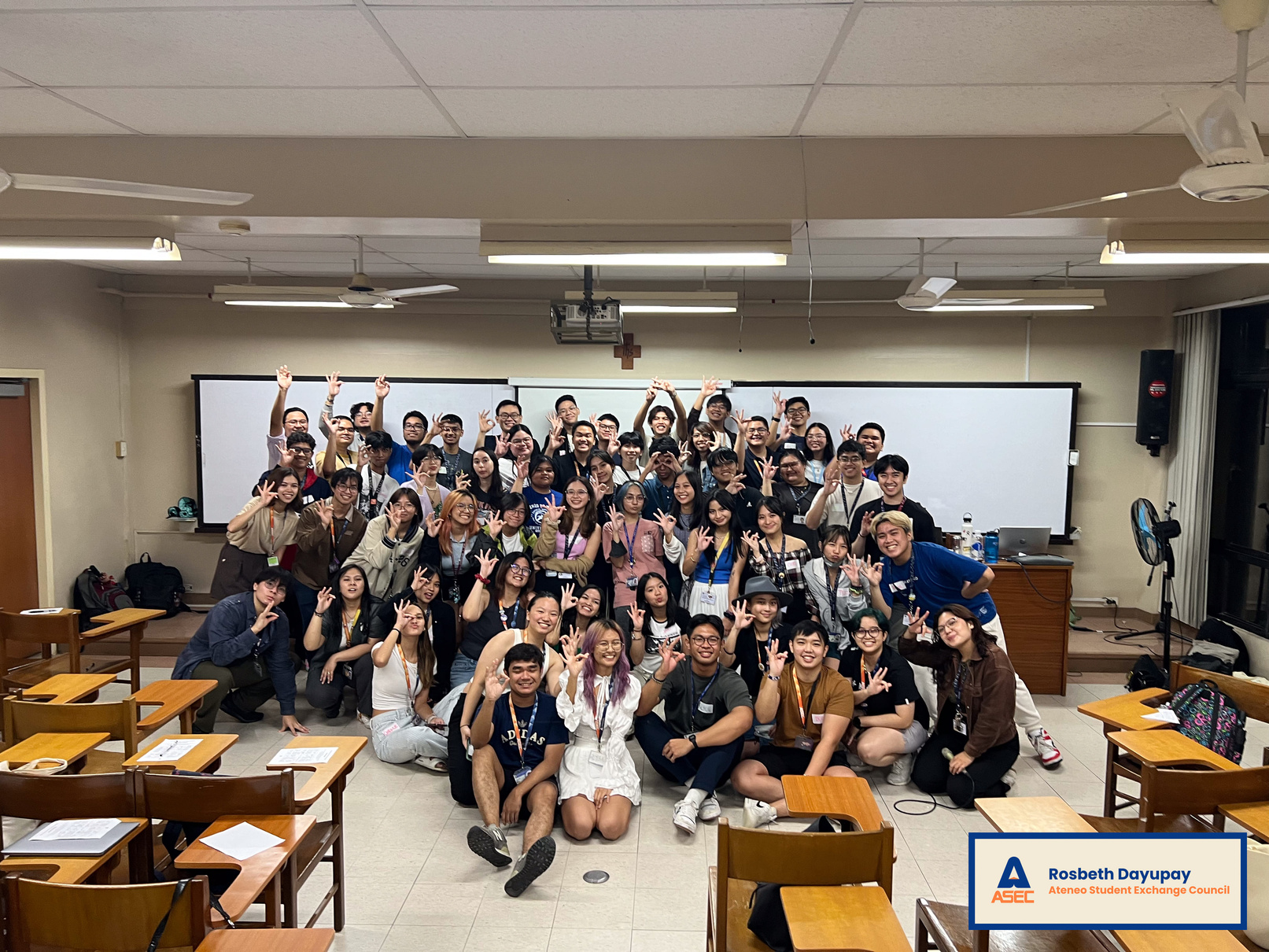
Third Culture Kid
A Third Culture Kid (TCK) is an individual who was raised in a culture other than the one their parents grew up in, or a culture that is different from their country of nationality.
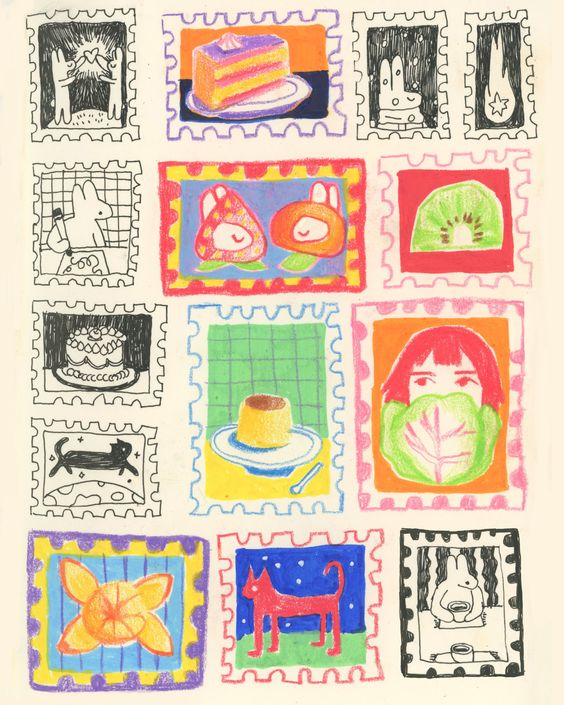
ASEC interviewed five TCK’s in the Ateneo to gain insight on their experiences in growing up in other countries and living here in the Philippines.
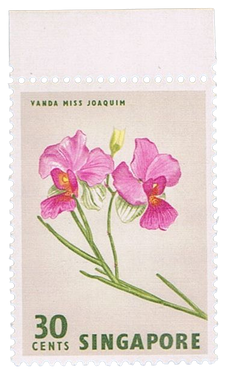
Liesl Chavez
Liesl Chavez (1 BS CHEM) is a TCK who was born in Japan and lived in Singapore. She says that the shifts from Japanese to Singaporean to Filipino culture have proved to be hurdles in life, but doesn't regret a thing because of the amazing people she’s met.
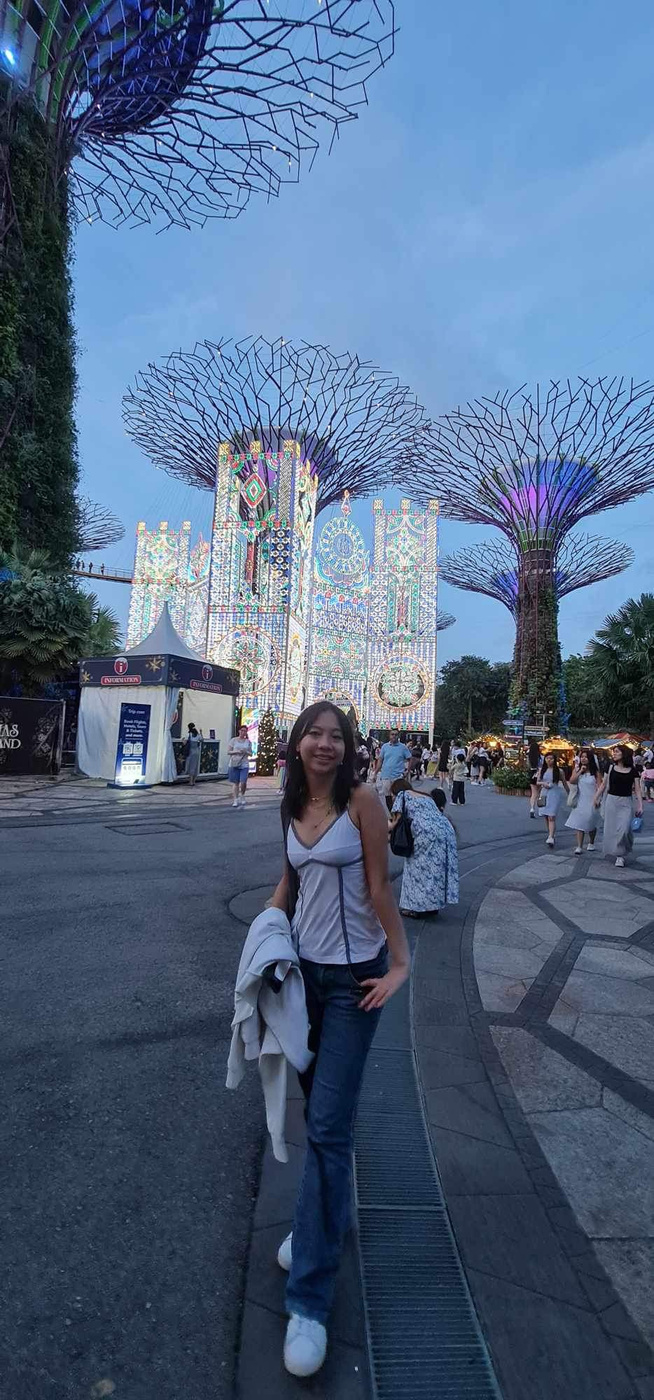
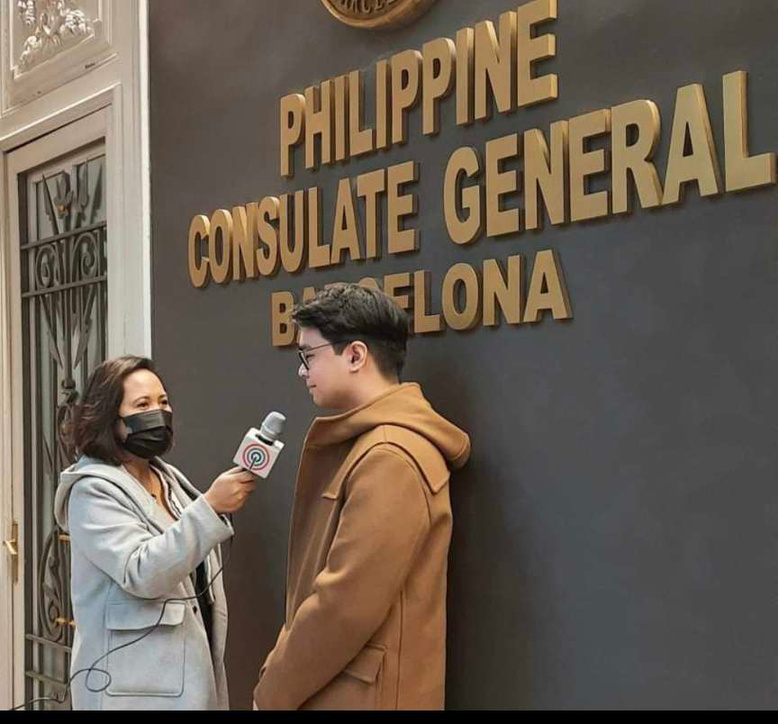
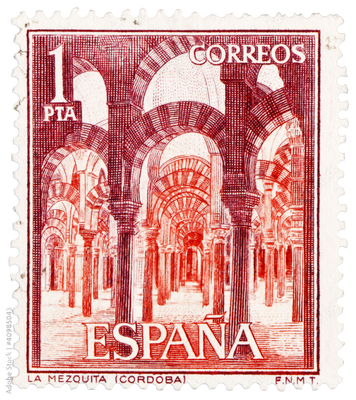
Brent Bagalay
Brent Bagalay (2 AB PSYCH) is a TCK who’s been in Argentina, Mexico & Spain. Growing up as the son of a diplomat meant staying in a particular country for six years before packing up and moving again. Despite this, Brent notes how being a TCK has taught him how to be more open-minded and led him to meet all different types of people.
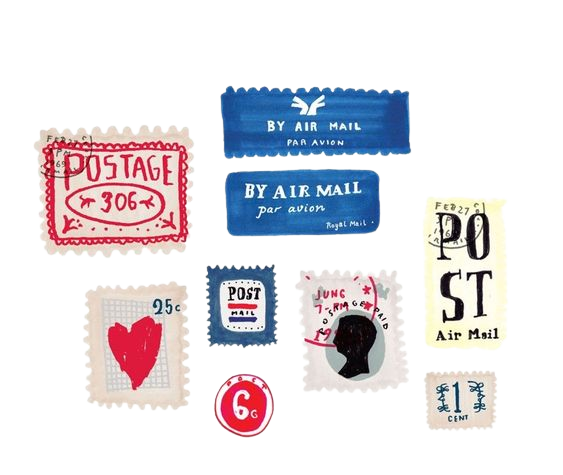
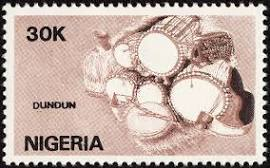
Joseph Obasa
Joseph Obasa, AKA Big Jo, (2 AGSB) is a TCK hailing from Nigeria, who’s lived in the U.K. and U.A.E. as well. He’s a student-athlete playing for the Ateneo Men’s Basketball team, who’s had the unique experience of being on campus during the pandemic.


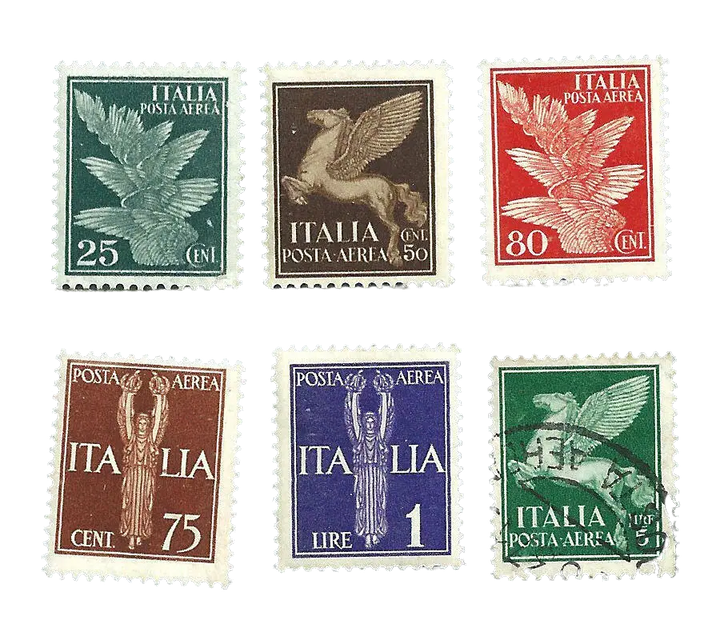
Kate De Guzman
Kate De Guzman (1 AB Dip-IR) is a TCK from Japan & Italy. She describes how she’s found the beauty in Filipino culture in Italy. Despite her first language being Italian and being raised in Italy, she still feels best at home in the Philippines.
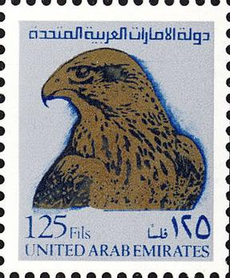
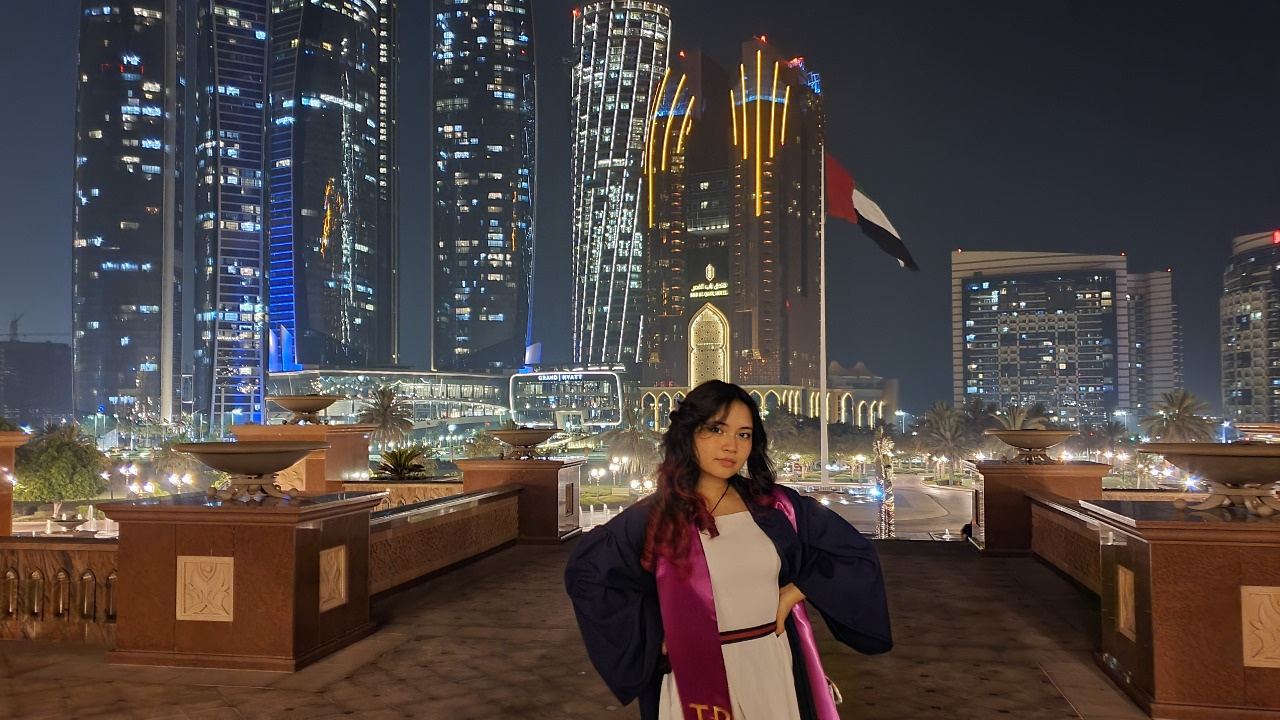
Alyssandra Lotino
Alyssandra Lotino, or Alice, (2 BS MAC) is a TCK from the U.A.E. She spent most of her elementary years in a Filipino school and transferred to an American International School for her secondary education. She details what it’s like to have two homes 7,000 km away from each other.
Childhood
Experiences

To Kate, Milan is one of the top places in Europe to find Filipinos, as signified by the popular cultural marker the fast food chain, Jollibee. “Where there’s a Jollibee, there’s a Filipino.” She said growing up in Italy, she became aware of cultural differences, raised in a mix of Filipino, Chinese, and Italian culture. Kate says she used to refuse to eat rice, strictly a pasta-only girl, but not Jollibee spaghetti.
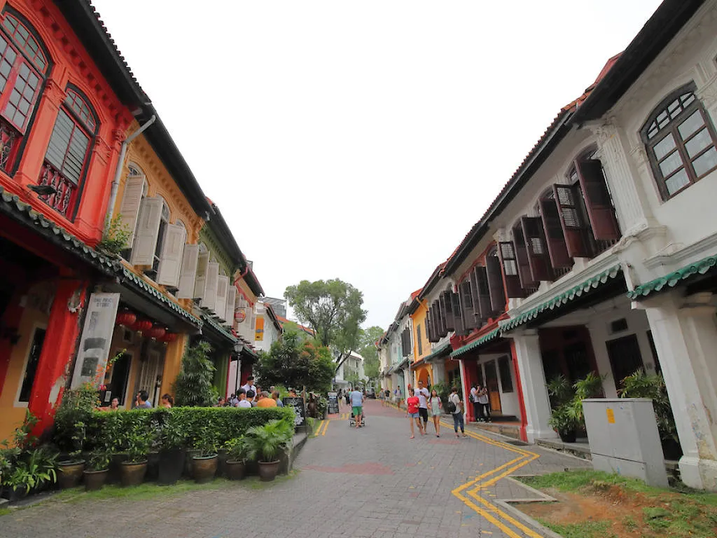
Photo by Cole Saladino
“Singapore was a melting pot of cultures,” stated Liesl. While studying in an international school, her friend group hailed from all around the world. Because of this she learned about the different cultures and different cuisines, her personal favorite being Indian food.

“Singapore was a melting pot of cultures,” stated Liesl. While studying in an international school, her friend group hailed from all around the world. Because of this she learned about the different cultures and different cuisines, her personal favorite being Indian food.
Photo by Salvador Castillo
Photo by Cole Saladino
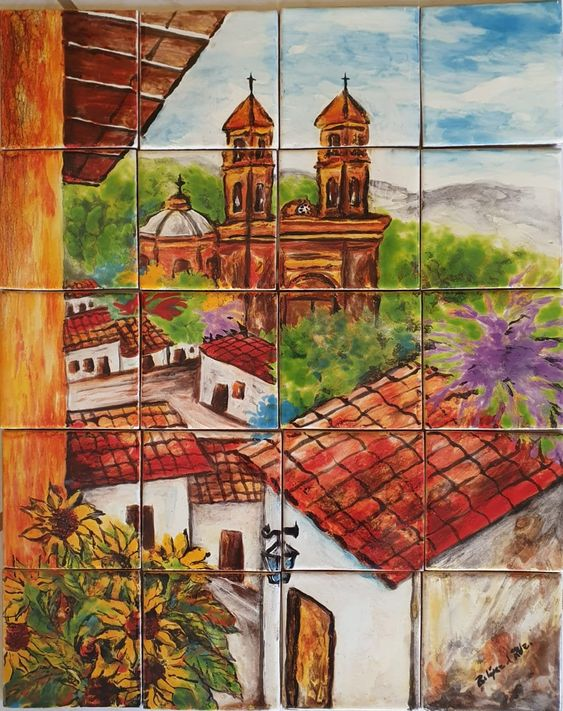
Photo by TK Kurikawa/Shutterstock
Brent recalled growing up surrounded by a unique mix of cultures, from American to Korean, to Latin American. It wasn’t until he grew older, that he found Filipino friends in Spain. Being a TCK isn’t just the glamorous image of living abroad, it also comes with its own caveats. Brent describes how difficult being an introvert and a TCK at the same time could be, moving around frequently made adjusting and making friends challenging.
Identity Crisis in
Young Adulthood
Do I Belong?
An identity crisis is defined as a period of uncertainty or confusion in a person's life. It usually occurs in major life changes, like moving across the globe for school. Difficulties in making friends and adjusting to the new environment can lead to the previously mentioned feeling of otherness, and alienation, which ultimately leads to a disconnect and eventual identity crisis. Do I belong in my host country? Or do I belong in the Philippines? Am I even Filipino enough to call myself Filipino? These are common thoughts when TCKs have an identity crisis, it’s one of the experiences that bonds most TCKs. When the topic is mentioned, there is a collective sigh.
Nosebleed refers to when Filipinos can be overwhelmed by a language barrier, like when you’re speaking in broken Taglish and your cousins joke that they’re getting nosebleed and can’t understand you. It can be funny at times, but it can be incredibly isolating and humiliating to be at the butt of a joke for trying your best to communicate. TCKs bring this up, adding that the very mention of nosebleeds causes an eye twitch. Such instances are examples of what can lead to a disconnect from Filipino culture. Am I really Filipino if I don’t speak Tagalog? Am I Filipino if I’ve never tried dirty ice cream?
??
Nosebleed refers to when Filipinos can be overwhelmed by a language barrier, like when you’re speaking in broken Taglish and your cousins joke that they’re getting nosebleed and can’t understand you. It can be funny at times, but it can be incredibly isolating and humiliating to be at the butt of a joke for trying your best to communicate. TCKs bring this up, adding that the very mention of nosebleeds causes an eye twitch. Such instances are examples of what can lead to a disconnect from Filipino culture. Am I really Filipino if I don’t speak Tagalog? Am I Filipino if I’ve never tried dirty ice cream?
On top of that, TCKs note the difficulty coping with how the world sees Filipinos. Alice talks about how she’s dealt with feeling “different” than most of her peers back in the U.A.E. There were instances where she’d been made fun of for being Filipino. “It made me feel like I didn’t want to be Filipino- I’d claim I was half-Japanese!”, she exclaimed. The feeling of wanting to be East Asian or White is a common diaspora experience in line with identity crisis troubles.
Kate empathizes with wishing to be white. “Italy is a very accepting country but …the far right is very anti-immigrant... Growing up there, I felt like an “other”...I felt like I didn’t have the right to call myself an Italian, but also do I have the right to call myself a Filipino?” To Kate, this issue of not knowing how to categorize yourself is why she identifies with the label of TCK so well.
Kate empathizes with wishing to be white. “Italy is a very accepting country but …the far right is very anti-immigrant... Growing up there, I felt like an “other”...I felt like I didn’t have the right to call myself an Italian, but also do I have the right to call myself a Filipino?” To Kate, this issue of not knowing how to categorize yourself is why she identifies with the label of TCK so well.
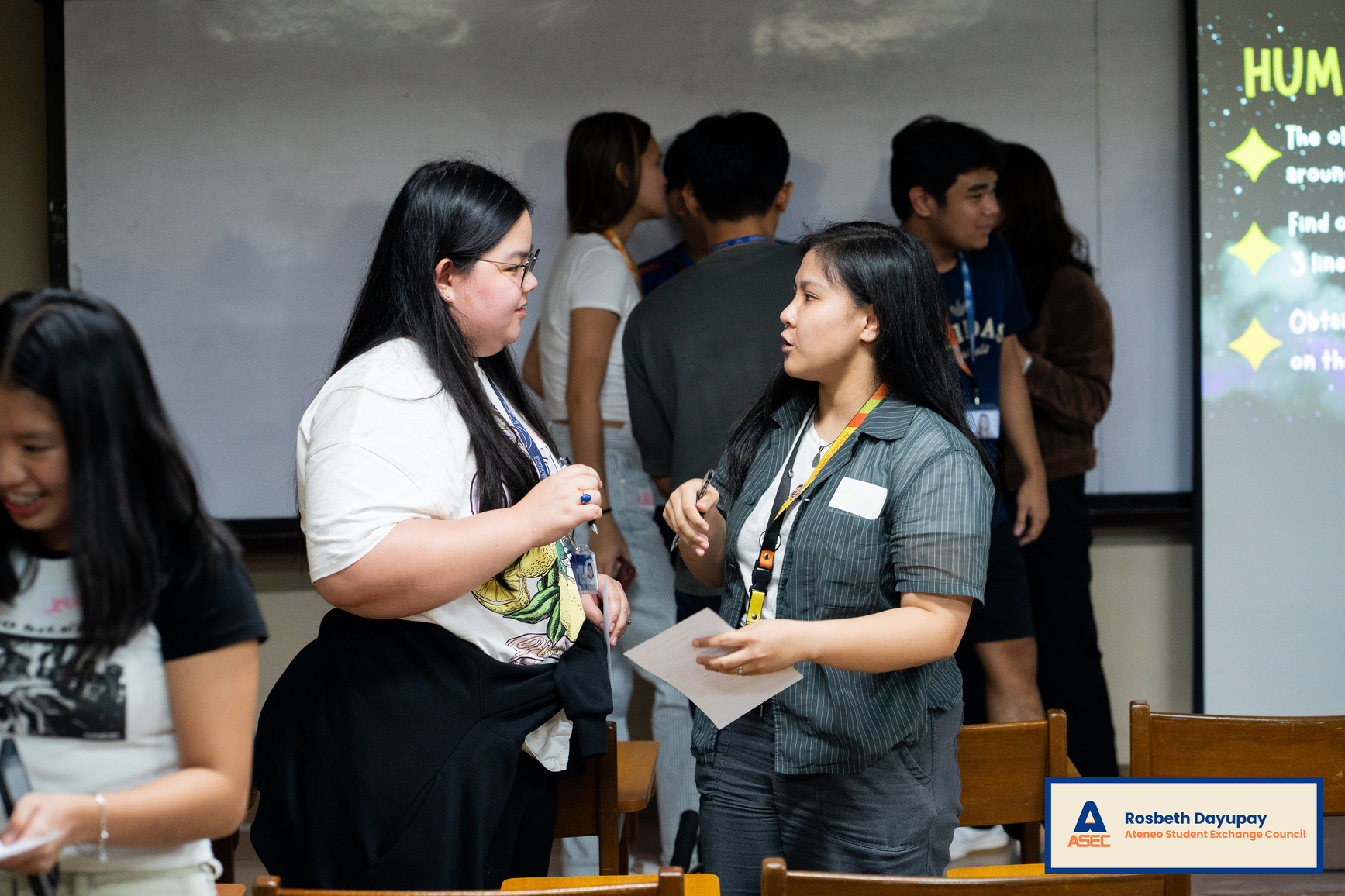
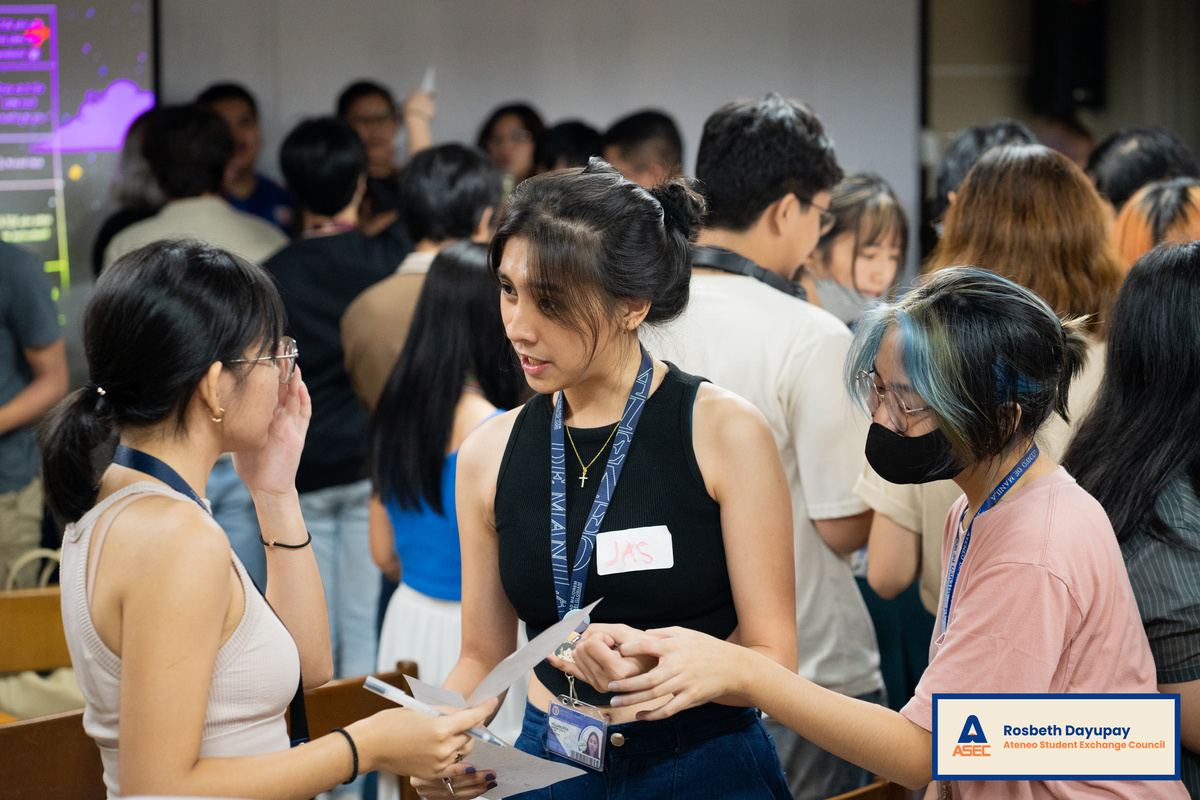
Such experiences can be so confusing, it’s an experience that persists for years. It’s also a good conversation starter. A collective sigh can signify shared struggles, which can be a point for building friendships. CD envisions the Ateneo Community of TCKs to be a space for these types of discussions and to foster a sense of belonging.

TCKs as
Ateneans
and
Global Citzens

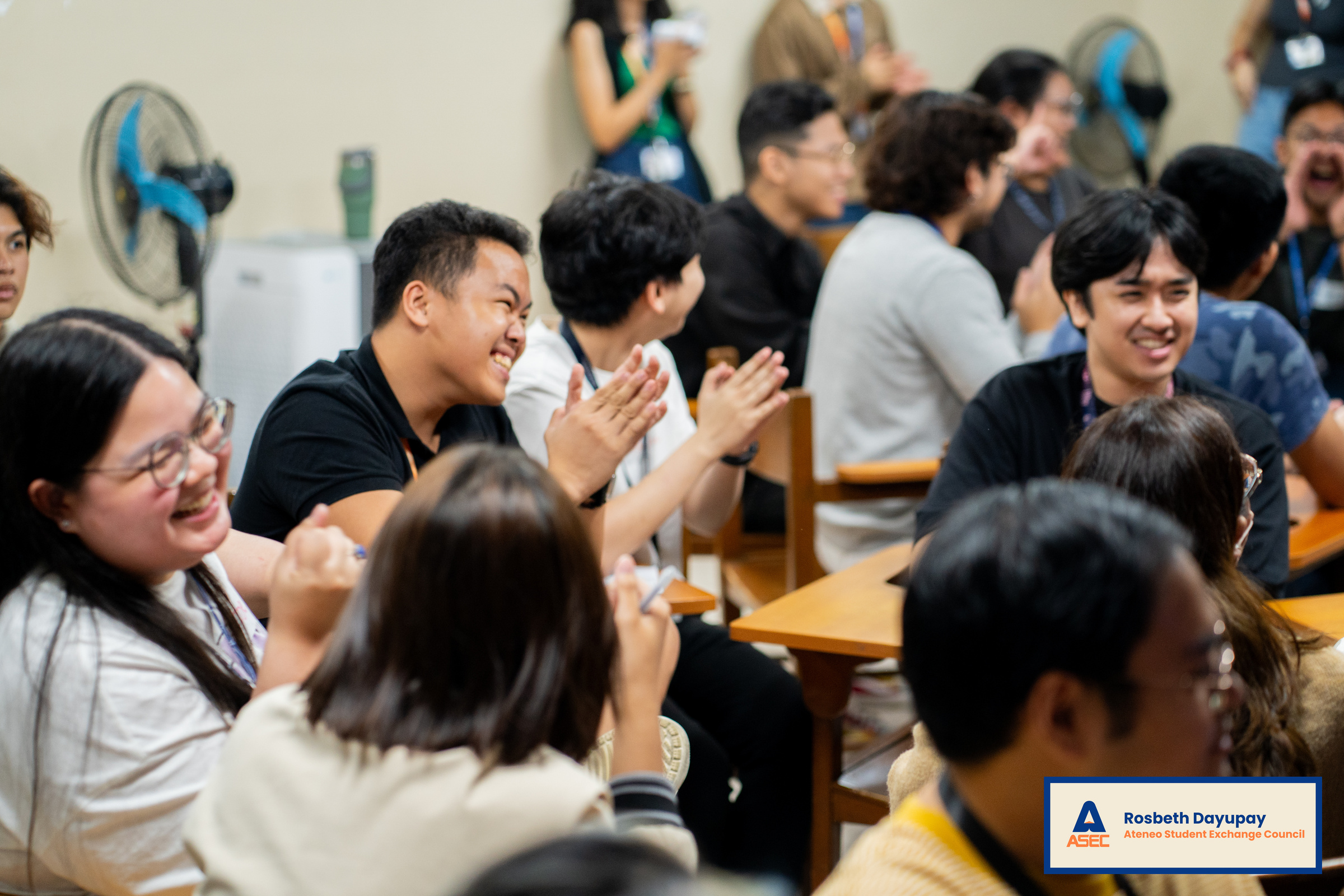
Besides welcoming international exchange students, the diversity in Ateneo is further enriched by Third Culture Kids. To welcome new and old TCKs to Ateneo, ASEC has launched several initiatives. One of these being the creation of the Cultural Development (CD) sub-department under ASEC. CD works to organize events catered towards TCKs and their needs as students and as individuals with multi-faceted identities.


Similar to ASEC’s Buddy Program where Exchange students of the Ateneo are paired with local students to guide them through their stay here, the TCKaibigan Program has been one of the main flagship projects of CD for TCKs. Offering Atenean TCKs an avenue to build support systems for one another based on similar interests, hobbies, and host countries. Companionship within the TCK community not only fosters a unique multicultural experience but also introspective conversations on what it means to be a TCK and the pros and cons of being foreign-born or raised.
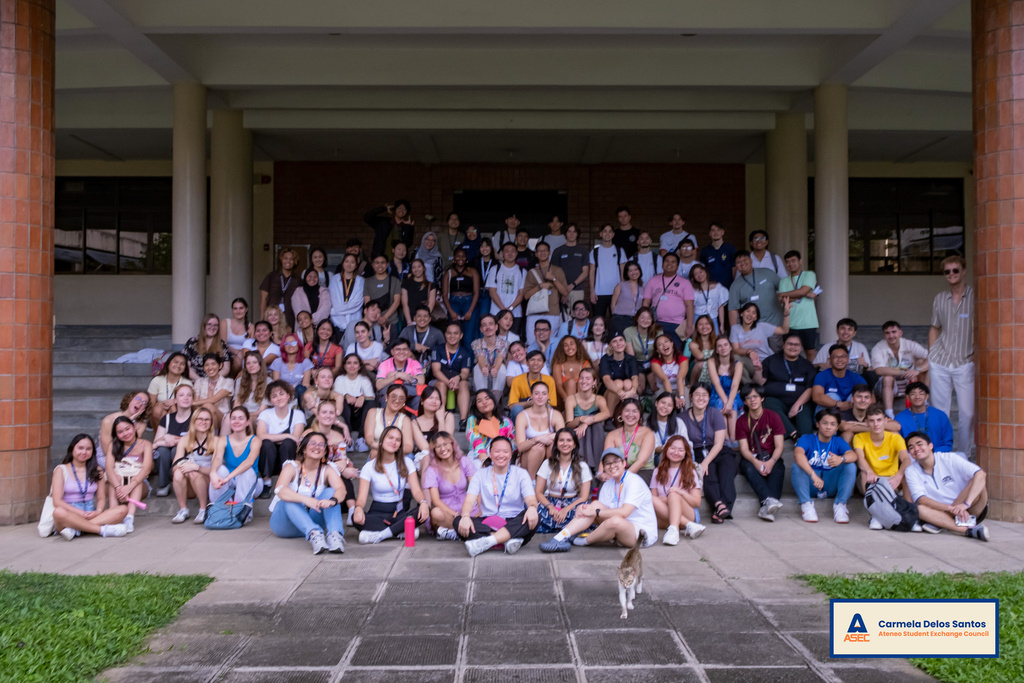
The Ateneo de Manila University endeavors to create diverse spaces where individuals of various backgrounds can come together. One such avenue for interaction is the Filipino for Non-Filipino Speakers Program, the alternate Fili 11.1 & 12.1 courses. This program creates opportunities for TCKs to learn about Filipino life together and opens a space for non-traditional Filipino upbringings. Over the years, the Ateneo Student Exchange Council (ASEC) has built a home for the TCK Community. As of 2023, there are around 100+ TCK’s in the Ateneo.
Ateneo Student Exchange Council IX Orsem (January 5, 2024)
Photo by Carmela Delos Santos
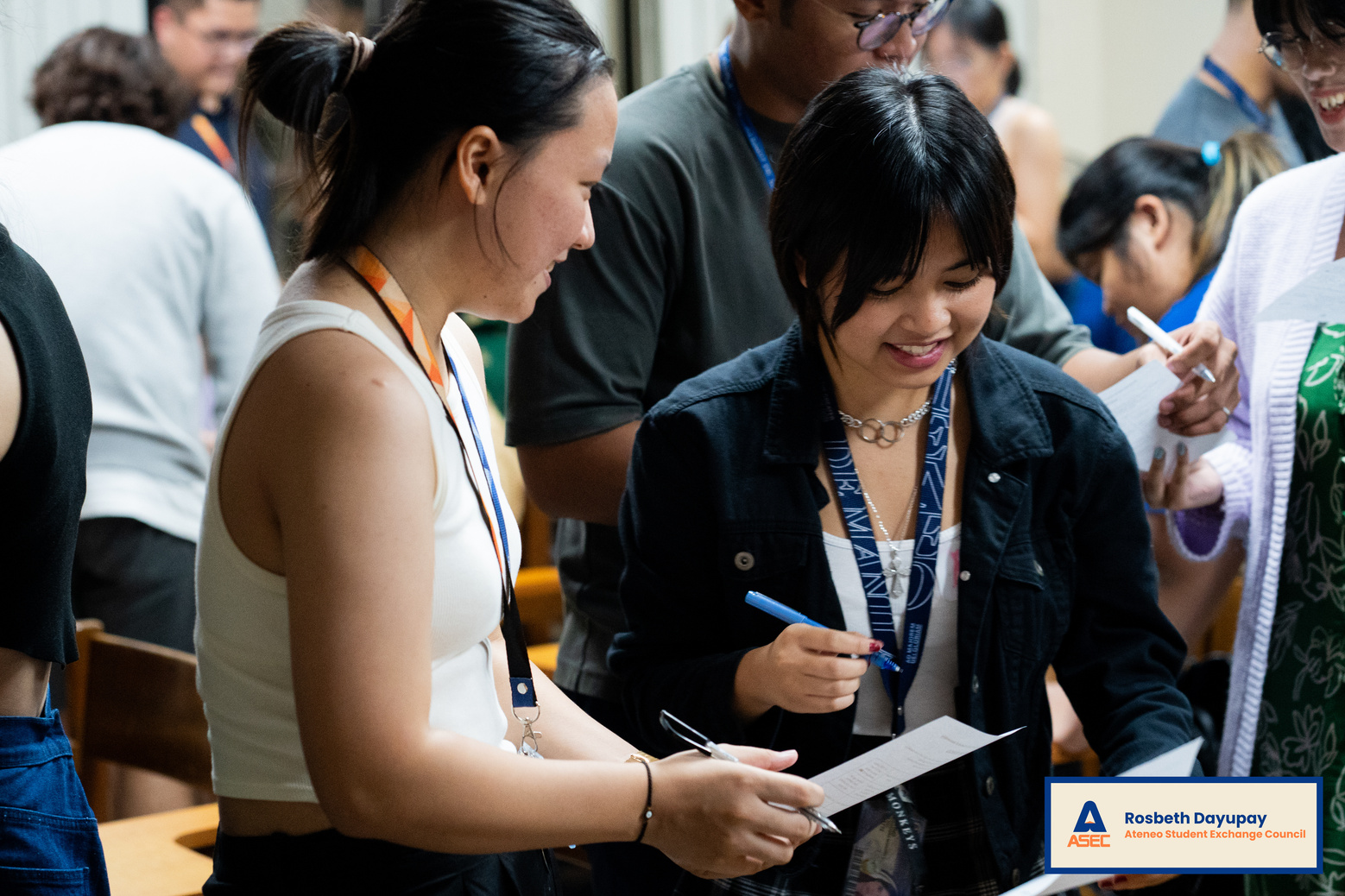
“Tell Stories, collect stories”
ASEC and the TCK community are the perfect place for building such friendships. The multilingual ability of a cultural student organization and the friendliness of ASEC members create a safe atmosphere for even the most different people to be friends. Conversations about being a TCK not only helps us understand our stories but meaningful conversations on culture and life experiences coupled with the open-mindedness of Ateneans creates a conducive learning environment.
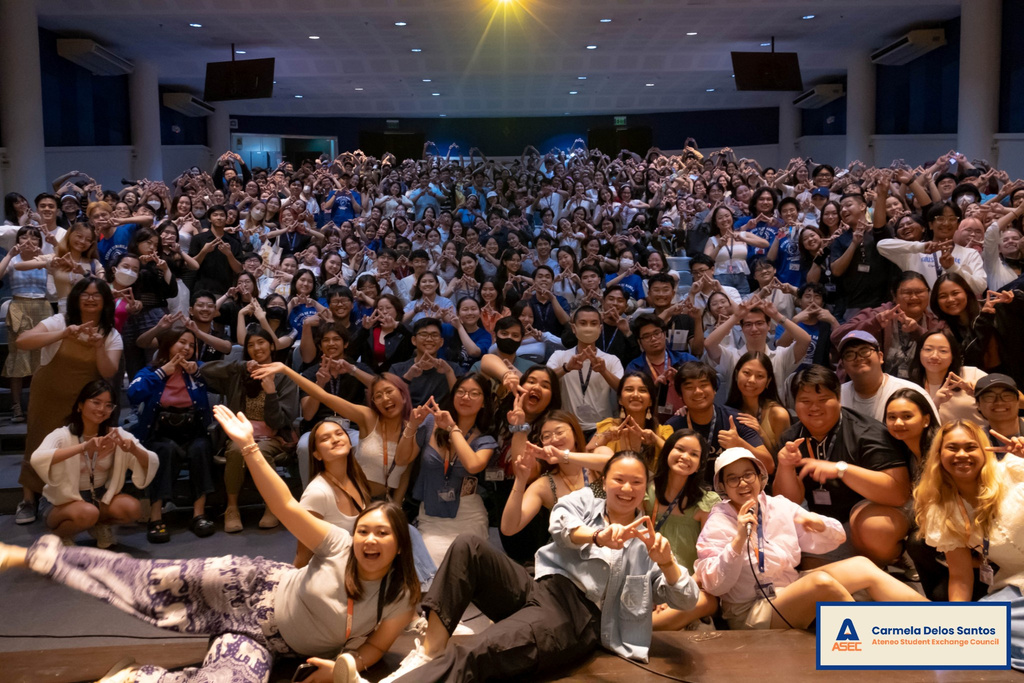
“I’ve been to so many places… I'm able to have a variety of perspectives and relate to others”, Jo shares. He’s always ready to share an insight coming from life experience. Like when he lost his passport abroad! He likes to focus on the good parts of his life in the Philippines so far. It’s made him open to more new experiences. “Tell stories, collect stories”, is what Jo says.

Ateneo Student Exchange Council General Assembly (September 12, 2023)
Photo by Carmela Delos Santos
“I’ve been more patient with how people view things. When you grow up in one place it's really hard to change your way of thinking. Thinking from different perspectives from different cultures, I communicate better and express my own ideas better.”, says Alice. She’s able to bring to the table a diversified point-of-view.
“The societal context of a country that has helped me integrate into how to read the room in relationships, in general, has helped me become more conscious of what I say. I tend to recalibrate the way I talk” Kate’s experiences have shaped how she socializes and how she contributes to the classroom.
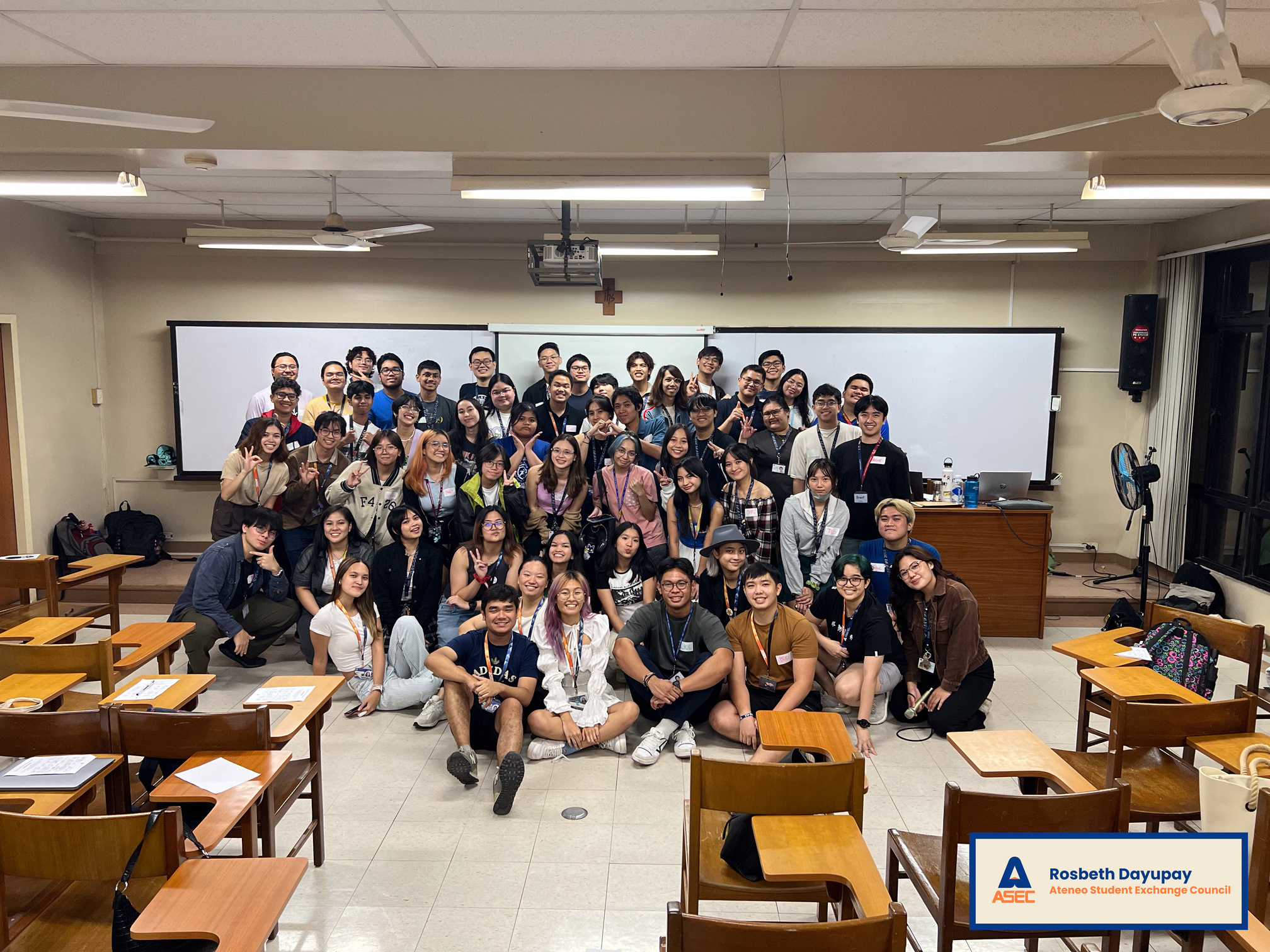
TCKs for
Everyone
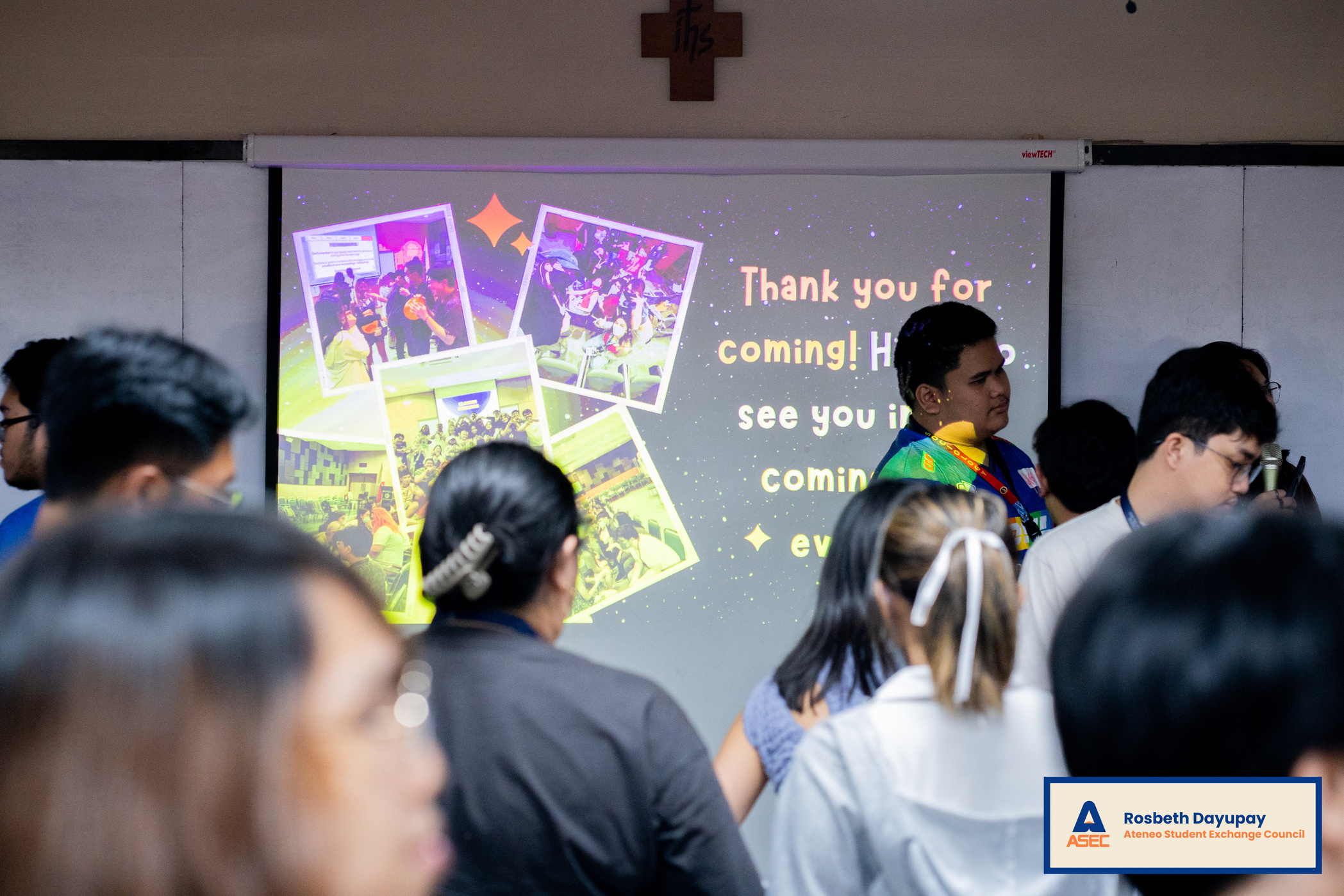
TCKs for
Everyone
In embracing the TCK experience, Ateneans not only broaden their worldview but contribute to a campus culture that celebrates diversity as a source of strength. We do not attend Ateneo in a bubble, we not only learn from our professors but also from our peers. What builds a solid Ateneo community is inclusivity, openness, and sharing. Through talking about our experiences, we learn from one another. It might be the little things, from teaching a Filipino phrase to a TCK and learning a phrase from their home country to bonding over how- no matter what country you're from, all Filipinos do the mouth-point-thing. In collectively redefining what it means to belong, we not only break free from the limitations of narrow identities but also strive for greater empathy towards others.
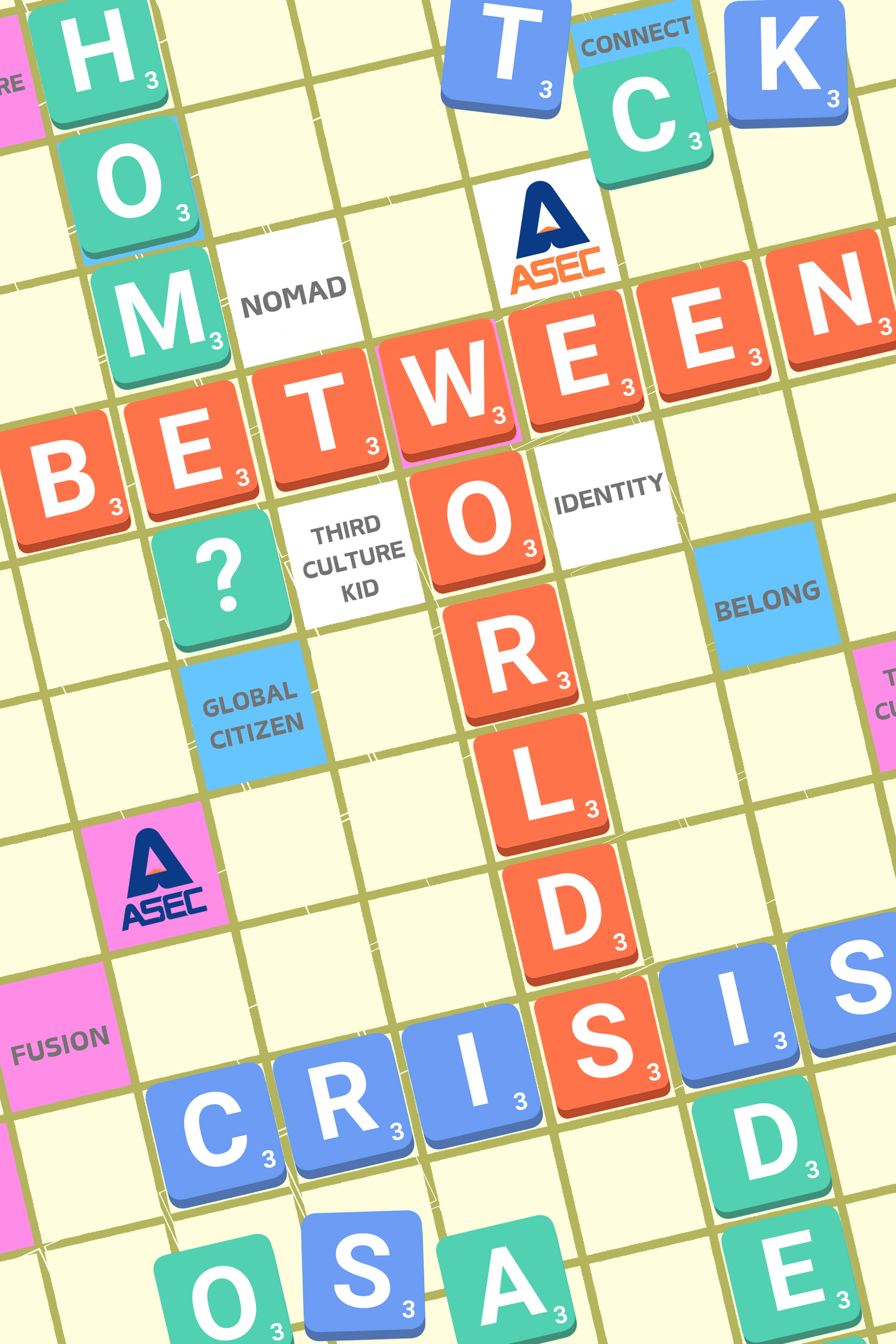
ASEC X OFFICE OF STUDENT ACTIVITIES
Between Worlds: Bordering Identities
Written by Teo Tiu, Trisha Blas, Julian Bautista & Alysa Fermin
Design by Claire Tatad, Carlo Dano , Patricia Mercado , Therese Jovellana, Teo Tiu & Alysa Fermin
Photos by Rosbeth Dayupay
Connect with us
